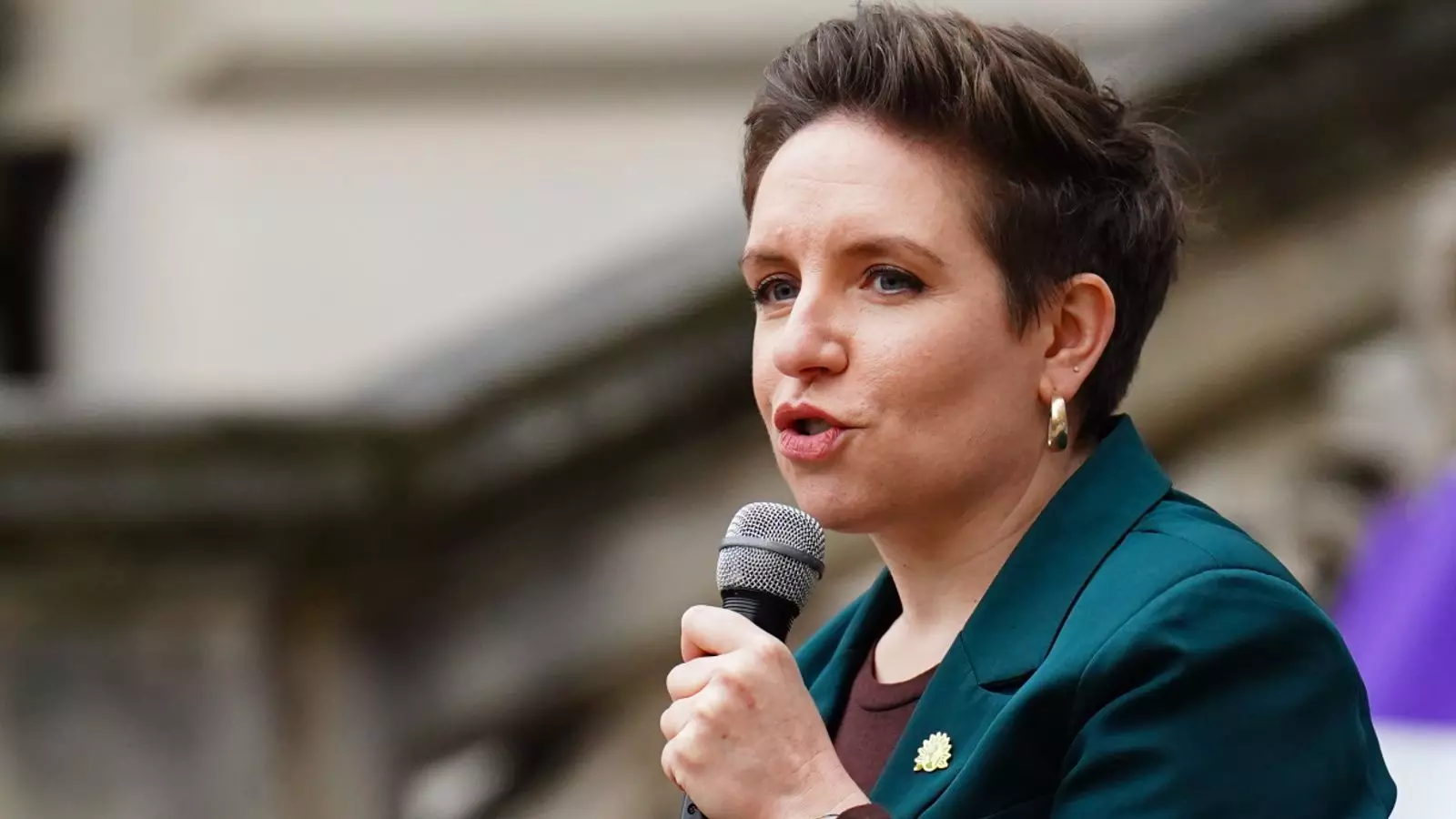The Green Party, renowned for championing progressive causes and environmental sustainability, faces an intriguing dilemma as the local elections loom on the horizon. Carla Denyer, co-leader of the party, staunchly defended her colleague Adrian Ramsay amid swirling suspicions of discord over the sensitive issue of trans rights. The nuances of this situation run deeper than mere politics; they reveal a tapestry of ideological beliefs and the party’s struggle to reconcile them without alienating potential voters or supporters. Rather than simply dismissing the controversy, it’s essential to engage with the conversation, understanding the implications not only for party unity but also for broader social issues surrounding gender identity.
Contradiction in Leadership or Differing Perspectives?
At the heart of this unfolding drama lies the pervasive question: are Denyer and Ramsay truly aligned in their beliefs? Ramsay’s hesitance to clearly state his stance regarding trans women sparked inquiries about the unity of their leadership, with both party members and the public craving clarity. Denyer’s defense—that their core policy recognizes trans women as women—positions the party as steadfastly pro-trans. However, what unfolds is a glimpse into the complexities of modern political dialogue, where multiple interpretations can lead to dissent even within a single ideology. The crux of the matter seems to lie in the delicate balance between advocating for diverse gender identities and addressing the apprehensions of those who might feel sidelined.
This juxtaposition opens a vital discourse on identity politics and the necessity of promoting inclusivity while still allowing room for debate. The Green Party’s commitment to trans rights—declaring that trans identities are valid—is commendable and essential in a time when so many communities face disenfranchisement. Yet, it raises an essential question: how does a party maintain solidarity amid a plurality of views without risking fragmentation?
The Election Landscape: Opportunity or Obstacle?
As the Greens gear up for local elections, the spotlight shines on whether internal strife will dampen or energize voter turnout. Denyer’s assertion that the party remains confident, despite growing pains, reflects a strategic optimism that underscores their electoral aspirations. The narrative of their increasing success, marked by a quadrupling of representatives in the House of Commons in the last general elections, provides the backbone for their claim of momentum. However, this momentum seems heavily influenced by public disillusionment with established parties rather than an intrinsic appeal for green policies.
Yet, the looming specter of Nigel Farage and the Reform Party introduces an unsettling dynamic. Farage’s brand of politics—a blend of celebrity and controversy—has successfully captivated attention and attracted support, thereby overshadowing smaller parties like the Greens. Denyer’s dismissal of Farage’s approach as one rooted in self-indulgence rather than communal values highlights a fundamental ideological clash. While the Green Party prides itself on grassroots engagement, it challenges the efficacy of this model in an era marked by soundbites and media tabloids.
The Paradox of Progressivism
What we now face is a paradox of progressivism: the more inclusive the dialogue aims to be, the greater the risk of division over varying interpretations of rights. As Denyer attempts to console uneasy voters while reaffirming the party’s commitment to trans rights, one wonders if this equilibrium is sustainable, especially as external pressures mount. The party’s ability to navigate this tightrope will be pivotal as it seeks to reclaim credibility and support in a landscape marred by divisiveness.
Ultimately, the questions raised by this intra-party conflict extend beyond the Green Party. They prompt critical reflections on how political entities can foster dialogue that simultaneously champions progressive ideals and embraces a diversity of opinions without descending into paralysis. The upcoming elections will serve as a litmus test, not just for the Greens, but for how effectively they—and potentially other political factions—can forge ahead amid the tumult of an increasingly complex social discourse.

Leave a Reply